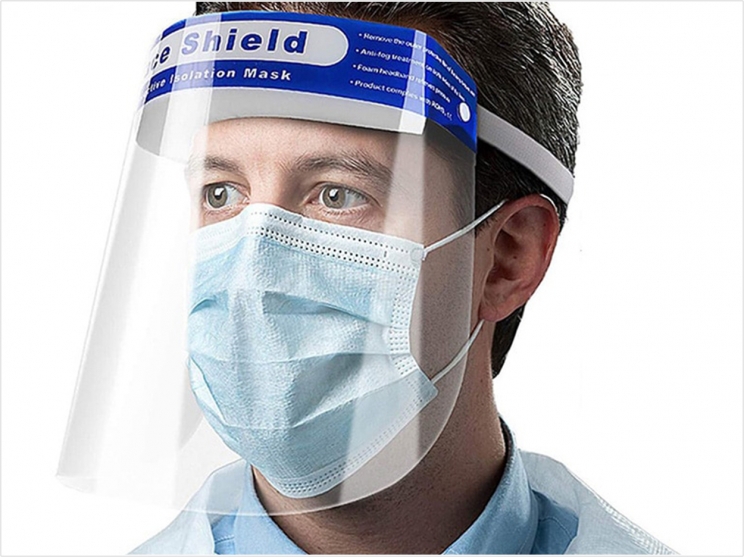
The ADA has written a letter to the leadership of the House Subcommittee on Select Revenue Measures for holding a hearing on the consequences of inaction on COVID-19 tax legislation and to express its support for recent legislation drafted to ease the financial burdens on dental practices during the pandemic.
First, the letter voiced the ADA’s support for the Small Business Personal Protective Equipment Tax Credit Act (HR 7216), which would provide small business dental practices with a $25,000 tax credit for gloves, medical masks, N95 respirators, eye protection, gowns and aprons, and other PPE as well as cleaning products and new or retrofitted equipment.
“At a time when dental practices are trying to overcome the economic downturn caused by COVID-19, the failure of Congress to act on COVID tax legislation hiders dentists’ ability to continue practicing in the midst of the pandemic. Relief for small business dentist owners through tax breaks and credits would help their practices stay open, retain their employees, and provide their patients with much-needed care,” said the letter, signed by president Chad P. Gehani, DDS, and executive director Kathleen T. O’Loughlin, DMD, MPH.
Also, the ADA said it strongly supports the Eliminating the Provider Relief Fund Tax Penalties Act (HR 7819). The letter called Congress’ allocation of $175 billion in financial relief to healthcare professionals via the Public Health and Social Services Emergency Fund (PHSSEF) necessary and appreciated by dentists. When fully and appropriately allocated, the ADA said, this funding could help many healthcare professionals avoid practice closures and maintain access to care for the nation’s patients.
“Yet issues have arisen around the tax implications associated with accepting those funds distributed by the Department of Health and Human Services. Currently, PHSSEF assistance is taxable, resulting in a 21% or more reduction to the benefit for taxpaying healthcare professionals as compared to non-taxpaying healthcare professionals. Taxing the provider relief funding in counterintuitive to Congress’ intent in providing such relief,” the ADA said.
HR 7819 would ensure that dentists won’t be subject to taxes on aid provided through the Provider Relief Fund regardless of taxpaying status, the ADA said. The bill would then enable dental practices to realize the full value of the benefit by guaranteeing that relief funds don’t add to their tax bills, the ADA said.
Next, the ADA said it supported the Jumpstarting Our Businesses’ Success Credit (JOBS Credit) Act (HR 6776), which would help dental offices retain and rehire employees. The bill expands the credit percentage from 50% to 80% of qualified wages; increases the per-employee limit of $10,000 for all calendar quarters to $15,000 per calendar quarter and an aggregate of $45,000 for all calendar quarters; phases in credit that would let employers with a more than 20% decline in gross receipts to be eligible for a portion of the credit; and improves coordination between Employee Retention Tax Credit (ERTC) and the Paycheck Protection Program (PPP) so employers can be eligible for both programs without “double dipping,” the ADA said.
The Skills Renewal Act (HR 7032) has the ADA’s support as well. This legislation would provide Americans who have been laid off or furloughed as a result of the pandemic a $4,000 tax credit to pursue post-secondary skills training and credentials. It not only would support employers and Americans in need, the ADA said, it also is bellwether legislation that would help secure the workforce throughout the pandemic and beyond.
Plus, the Small Business Expense Protection Act (HR 6821) would ensure that small businesses can deduct eligible expenses paid with a forgiven PPP loan from their taxes. The ADA notes that the Internal Revenue Service’s Notice 2020-32 undermines the PPE by stating that normally deductible business expenses won’t be deductible if the business pays the expense with a PPP loan that is subsequently forgiven. HR 6821 would fix this misinterpretation, the ADA said.
“Financial instability and uncertainty has become commonplace for many Americans, including our members and their staffs,” the letter said. “Inaction on COVID-19 tax legislation significantly exacerbates these challenges. Providing legislative tax relief as described in this document is essential to continual support of dental practices during this unprecedented health crisis.”
Related Articles
ADA Says Dentistry’s Recovery Has Leveled Off
ADA Says Dentists Should Be Among First to Receive COVID-19 Vaccine
ADA Commends Healthcare Readiness Legislation











